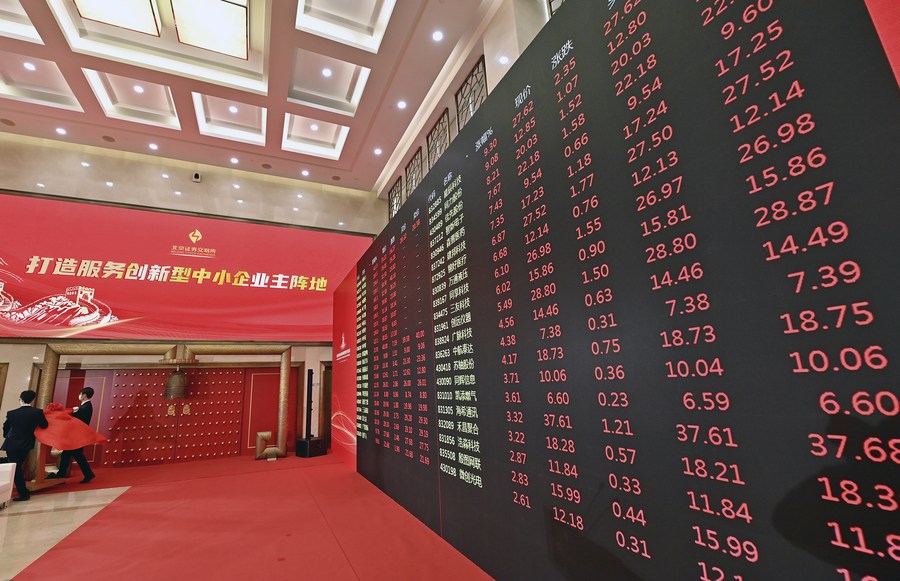Beijing Stock Exchange gives a new boost to SMEs
 0 Comment(s)
0 Comment(s) Print
Print E-mail chinadaily.com.cn, December 14, 2021
E-mail chinadaily.com.cn, December 14, 2021

A total of 82 companies had listed on the Beijing Stock Exchange by Dec. 8, covering 25 sectors of the national economy with accumulative transactions at 43.02 billion yuan ($6.76 billion), an average increase of 101.49 percent, the People's Daily reported on Monday.
The new bourse has put more small and medium-sized enterprises in the spotlight of the capital market, and eased their financing difficulties to further spur innovative vitality.
Beijing Tri-Prime Gene Pharmaceutical Co Ltd, a biomedicine company that moved to the BSE from NEEQ Select - the highest tier of the National Equities Exchange and Quotations system, is revving up production of the interferon drugs at its smart factory.
"Listing on the Beijing bourse is like 'putting an accelerator' for innovation'," said Cheng Yongqing, chairman of Tri-Prime Gene.
"A company's innovation capability requires large amount of fund support... but SMEs are commonly weak in financing due to the lack of adequate mortgage and guarantee," Cheng added.
Tri-Prime Gene quickly build its name after the BSE listing, with corporate financing channels broadening greatly, which gave a strong impetus to the ongoing research and development projects.
Yang Peng, president secretary of the Shaanxi Tonly Heavy Industries Co Ltd, said the listing helped the company to raise money for building an automobile factory in Xi'an, with equipment added and R&D teams expanded.
"After listing on BSE, the program is expected to be put into operation one year earlier," he said.
Yang was also impressed by the continuous financing system that Beijing bourse tailored for innovative SMEs.
According to BSE guidelines, a company can refinance after six months of going public, with diversified issuing mechanism and financing tools offered, such as common stock, preferred stock as well as convertible bond.
"Beijing bourse serves for companies that are in early stage of development, with relatively small business scale but strong innovative capability. About 80 percent of listed firm are from advanced manufacturing, high-tech services and strategic emerging industries," said Li Xudong, managing director of China Securities.
Liu Xiaoliang, president secretary of Nutrichem, an agrochemical company based in Beijing, said the BSE lowered the cost and difficulty of listing for SMEs.
It gave a chance for those firms with relatively weak finance capability to raise money, he said, and the time for reviewing the listing materials has been shortened to about two months.
Tian Xuan, an associate dean and a professor of finance at the PBC School of Finance, Tsinghua University, highlighted the differentiation should be further expanded between BSE, ChiNext and the STAR market, in issuance conditions, trading mode and governance mechanism.
According to the BSE, the bourse will improve inclusiveness for more SMEs and continuously optimize its listing access conditions. It will also guide private and public funds to increase investment, and encourage long-term funds such as insurance funds and social security funds to enter the exchange.





